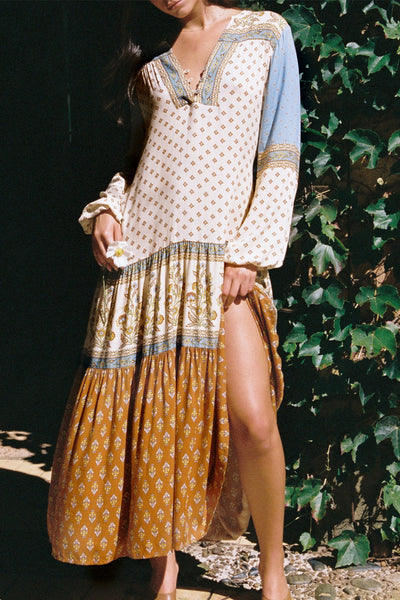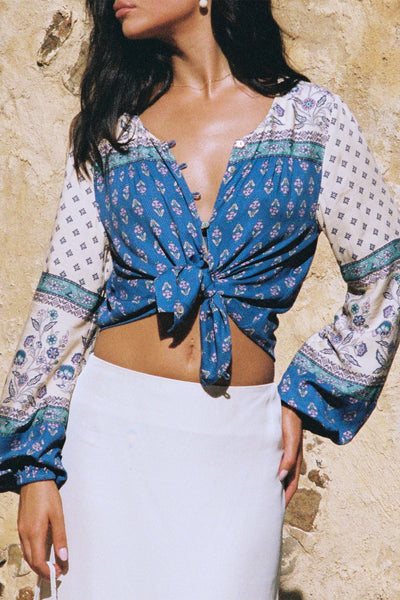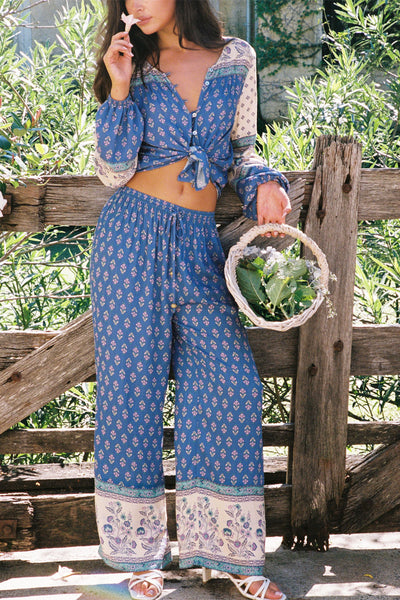Fashion Revolution Byron Bay Panel Event


Our stellar panellists included:
Camille Reed - Founder Australasian Circular Textile Association, supporting and facilitating the acceleration toward a circular economy for the textiles sector.
John Condilis - Founder Nobody Denim, iconic Australian fashion brand and pioneer of ethical and sustainable manufacturing with a Melbourne based vertically integrated denim factory and laundry.
Dr. Clara Vuletich - a sustainability strategist and designer with over 10 years of experience in sustainable materials, circular economy principles for fashion/textiles, and social impact issues in global supply chains.
Dane Ward – General Manager Afends, an iconic Byron Bay based lifestyle brand. Known for their Hemp Revolution campaign they are driving change through sustainable fibres and have implemented ethical practices through their whole supply chain.
Sam Delgos – Production Manager, Arnhem Clothing
Guest Speaker: Jonathan Clark - Apex Harmony Campaign Coordinator, Sea Shepherd
The focus of the discussion was circularity. Here Camille explains the concept of circularity:
“Circularity is following the principles of the Circular Economy, which are developing and creating products to be fully regenerative and sustainable in every aspect – from the origination of the raw material/fibre through to end-of-life. The overarching objective is to maintain the material's unique and inherent value throughout every step of creation to resource recovery and ensure the very least amount of environmental impact at every step.
Currently, what we know is the apparel and textile industry operates in a linear 'old-school' industrial revolutionary model. Circularity is an adaptive new business model, the natural environment has been operating in a circular existence forever. While man-made supply chains (particularly overseas) are extremely complex and multi-faceted. It will take some time to realign businesses to a circular model – circularity can also be known as closed-loop or cradle to cradle” ~ Camille Reed

The conversation was insightful and engaging, exploring individual journeys on the sustainability path and the turning point and driving force behind them. From chemicals in textile production to the confronting realities of unethical manufacturing practices in India.
We learnt about design activism; the importance of transitioning to sustainable materials:
“I had done lots of research into the academic literature about design activism. It was this idea that the role of the designer was actually invented to support the industrial revolution and to create products that can be manufactured and sold as part of a consumer system (take/make/waste). But, designers started to rebel against this role. The question started to become - How can we as designers use our skills to support ecological and social change rather than contribute to just designing and selling more products that end up in landfill? And I wanted to explore what this meant for fashion and textile designers. I concluded that designers were perhaps different to other activists (who traditionally would chain themselves to trees or perform very disruptive forms of activism). Designers had their own approach which was obviously centred on their material and design thinking skills to solve problems and imagine possible futures.
I believe that today designers and their unique skills are needed more than ever. The complexity of the sustainability challenge in the fashion industry demands that we collaborate and think outside the box, and designers are fantastic at getting teams and people to do this.” ~ Clara Vuletich
The panel discussed the critical need for supply chain transparency and the opportunities and challenges of manufacturing here in Australia. Nobody Denim recently produced a collection made from Australian grown Good Earth Cotton™ and partnered with Fibretrace an innovative technology for transparency.
“As industry moved away from Australia this was opportunity to reinvigorate our industry. As an organization transparency has always been at the forefront of our business so this was a new way to take it to the next level. This technology is part of a quality management system to allow clear visibility of what is going on with our product from raw material to a finished garment. As both companies, Good earth cotton and Nobody Denim are so passionate on making a difference in our industry it made it very easy to collaborate and achieve our objectives. There will be teething issues but that is the beauty as we both are continuing to improve rather than give up.” ~ John Condilis
The panel discussed how durable and relevant materials, and design ensure longevity extending the life cycle of garments. We explored the opportunities of upcycling and Jon from Nobody Denim shared their recent collaboration with Homie to create the Reborn collection from factory seconds and faulty samples. We shared our journey and the challenges of recycling garments at the end of life, and also the opportunities and success of our zero-waste collection Revive, plus our venture of using fabric scraps to create paper. Camille provided insight into the evolution of textile recycling here in Australia.
The consensus was that a shift in mindset both within the industry and as consumers is needed, and that there's a distinct need for government policy to support innovation in the textile recycling space.
Our panelists came from all around Australia to attend this event and remarked on the unique culture of Byron Bay with so many brands exploring sustainable and ethical practices, creating a platform of opportunity to share knowledge and resources through potential for collaboration. Here at Arnhem this is something we intend to explore.
After the discussion we screened a short film about Lucia and the recycling of bulk fabric scraps destined for landfill into paper. The film also documented the clean water for artisans campaign our block printing supplier has implemented. The system recycles water to be reused in the printing process, closing the loop on waste and conserving this vital resource. We will be donating 10% of the profits made from the sale of our block printed artisan collection Lucia to this project. You can learn more and watch the film here.
Jonathan Clark, Sea Shepherds Apex Harmony Campaign Coordinator concluded with a talk addressing the human impact on the ocean and its ecosystems and the critical need for change particularly with ocean waste and microfibers giving context to the conversation and the reality of the ecological crisis we are facing.
We were incredibly inspired by the discussion and brand engagement. Our focus is to explore and nurture these connections as we believe that the future of sustainable fashion will be born out of collaboration. We left the event energised and motivated, wanting to use our panel sustainability discussions in the future to bring together our peers and fuel innovation.
Keep scrolling for more information about our sponsors and find a discount code from Flora & Fauna.














Attendees were treated to a tote bag filled with local, ethical and sustainable treasures. A very special thanks to all our sponsors that contributed to the event:
RIPL - drink bottles that tackle the cycle of poverty and plastic in Bali, 1 bottle = 1 day of employment.
Flora & Fauna - plastic free goodie bag and also for all of our Arnhem community a 15% discount to use off their Green + Kind range. Use Code Arnhem15 at checkout.
Zerowaste Kulture - Arnhem household wipes & face wipes.
Eco Modern Essentials - 'Immunity Support' oil blends.
Chow Cacao - Peanut Butter choc spread - Gluten free, organic, vegan, local.
People of the Earth - eco & sea friendly zinc/sunscreen.
Peppermint Magazine - stories of people doing good in the world, with a focus on ethical and sustainable fashion, slow living and mindfulness.
The Daily Bar - superfood snack bars made in Byron Bay.
Byron Bay Tea Co - organic, wild-crafted, pesticide free ingredients that possess healing properties and are full of natural unique flavours.
Stone & Wood Beer - proudly local and independent, brewing.
Music by Hemi Time


